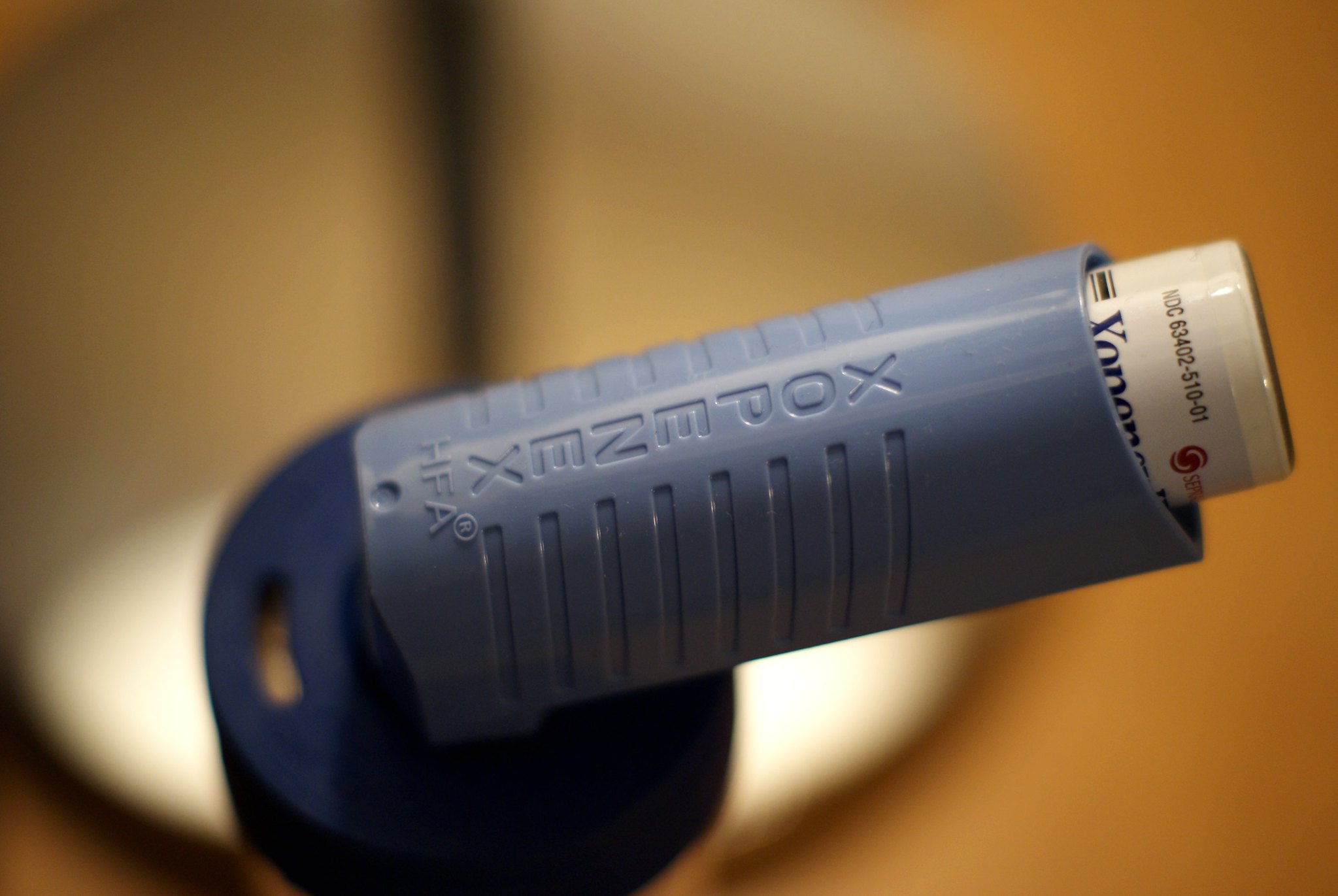What We’re Not Being Told About Inhalers
The devices used by millions of people to combat asthma and other breathing problems can also waste scarce resources. chapstickaddict / CC BY-NC-ND 2.0
chapstickaddict / CC BY-NC-ND 2.0
Many people affected by breathing conditions like asthma may be unwittingly adding to global heating, because of the climate threat from inhalers often used to relieve their suffering.
Many of the appliances used at present – termed metered-dose inhalers – contain propellants that are potent greenhouse gases (GHGs) which contribute to the problems of climate change.
A new study by researchers at the University of Cambridge in the UK says that if health services switched to prescribing “green” inhalers instead, big cuts would be possible in the output of the climate-damaging gases.
The study, published in the BMJ Open journal, says that by switching from expensive brand-named drugs and inhalers to alternative products, there’d also be considerable cost savings.
It’s estimated that more than 330 million people worldwide suffer from asthma, with a substantial proportion of that number having to use inhalers.
Ozone Damage
Commonly-used metered-dose inhalers contain liquefied compressed gases that act as a propellant, atomising the drug in the inhaler and pumping it out to the user.
At one stage chlorofluorocarbons (CFCs – potent greenhouse gases which also damage the Earth’s ozone layer) were used in inhalers. Their use is now banned, and another gas called hydrofluoroalkane, or HFA, acts as the propellant instead.
The Cambridge study says that though HFAs do not damage the ozone layer, they are nonetheless potent greenhouse gases and contribute to overall global warming.
It recommends a switch from metered-dose inhalers containing HFAs to what it describes as effective alternatives such as dry powder inhalers or aqueous mist inhalers.
The researchers were mainly examining the use of inhalers in the UK and the costs to the country’s National Health Service (NHS). Some countries have already switched to non-HFA inhalers.
“In 2017, around 50 million inhalers were prescribed in England, of which seven out of ten were metered-dose inhalers, compared to only one in ten in Sweden”, says the study.
The researchers say they found that the output of greenhouse gases from metered-dose inhalers was between 10 and 37 times that of dry powder inhalers.
“At 2017 prescription levels, replacing one in ten metered-dose inhalers in England with the cheapest equivalent dry powder inhalers could lead to a reduction in drug costs of £8.2 million (US$10.6m) annually and would reduce carbon dioxide-equivalent emissions by 58 kilotonnes.”
“At the individual level each metered-dose inhaler replaced by a dry powder inhaler could save the equivalent of between 150 and 400kg of CO2 annually, which is similar to many actions that environmentally-concerned individuals are taking at home already, such as installing wall insulation, recycling or cutting out meat.”
Zero Carbon Aim
The researchers stress that patients shouldn’t stop using inhalers, but should discuss their treatment with their doctor. Patients should ensure inhalers are used correctly and properly disposed of.
“Climate change is a huge and present threat to health that will disproportionately impact the poorest and most vulnerable on the planet, including people with pre-existing lung disease”, says Dr James Smith, consultant in public health at the University of Cambridge.
“Our study shows that switching to inhalers which are better for the environment could help individuals and the NHS as a whole, and reduce their impact on the climate significantly.
“This is an important step towards creating a zero carbon healthcare system fit for the 21st century.”
Your support is crucial...As we navigate an uncertain 2025, with a new administration questioning press freedoms, the risks are clear: our ability to report freely is under threat.
Your tax-deductible donation enables us to dig deeper, delivering fearless investigative reporting and analysis that exposes the reality beneath the headlines — without compromise.
Now is the time to take action. Stand with our courageous journalists. Donate today to protect a free press, uphold democracy and uncover the stories that need to be told.






You need to be a supporter to comment.
There are currently no responses to this article.
Be the first to respond.